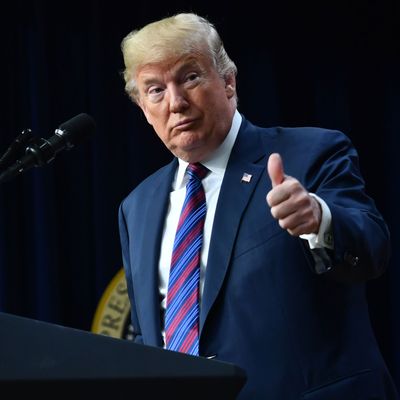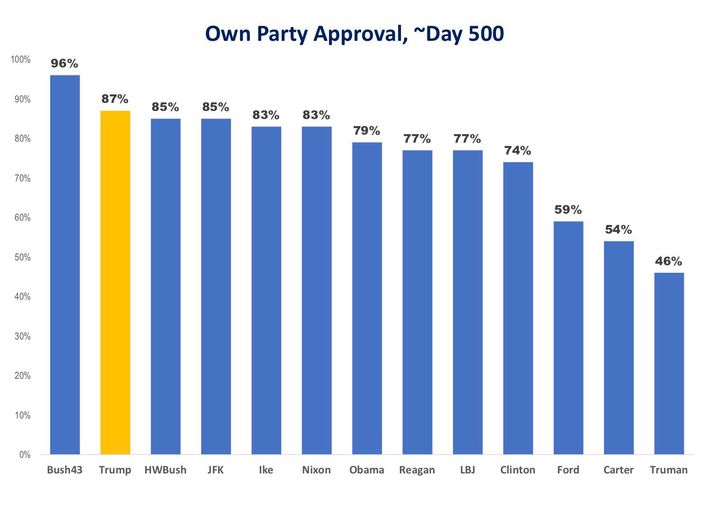
In one of his now almost-daily statements purporting to defend President Trump while in fact making him appear extremely guilty, Rudy Giuliani told S.V. Dáte that the president’s categorical immunity from criminal prosecution would include murdering his political opponents. “In no case can he be subpoenaed or indicted. I don’t know how you can indict while he’s in office. No matter what it is.” Even if he shot former FBI director James Comey? “If he shot James Comey, he’d be impeached the next day,” Giuliani said. “Impeach him, and then you can do whatever you want to do to him.”
It might sound reassuring to hear from Trump’s lawyer that he believes the president is not immune from the law because he can be impeached. But it is less reassuring than it might sound.
The first problem with Giuliani’s impeachment remedy is that, if Trump shot James Comey, he would deny having done so. (Murderers often lie about what they’ve done, and Trump is not known for his compulsive honesty.) The question of how Comey was shot would be a mystery that federal law enforcement would wish to solve. But Trump also maintains that he has the absolute right to halt any federal law-enforcement investigation. He also claims to have the right to initiate legal investigations into anybody, for any reason, which would allow him to pressure any witnesses, or to induce them to destroy evidence. What’s more, he indisputably possesses the right to pardon any witnesses or accessories to the crime.
Even if he couldn’t succeed in quashing the investigation, Trump could at least attempt to obstruct it. Unless he happened to carry out the shooting on live television, the Trump-shooting-Comey hypothetical would, in reality, devolve into a fight over investigative detail. The FBI would be trying to track down the killer, Trump would be fervently denying it, and using his powers to impede the investigation. Fox News would be airing theories that Comey was actually killed by the Clintons, or perhaps fell on the bullet. The less absurd conservatives would be complaining about whether it was fair to prosecute various Trump associates for secondary crimes, like lying to the FBI.
The second problem is that, even if the FBI managed to defeat Trump’s attempts at obstruction and present overwhelming evidence of guilt, impeachment (or impeachment and removal, anyway) would be far from certain. Trump’s prophetic claim in January, 2016, that he could stand in Fifth Avenue and shoot somebody and not lose any voters is relevant here, and not only because it entertains the exact scenario Giuliani describes. Trump has proven deeply popular with the Republican base. He in fact commands more support from self-identified Republicans than any Republican president in the history of polling.

Trump lost his marginal voters very early, putting his reelection in deep jeopardy. But his partisan core has stuck with Trump through a numbing procession of face-plants, petty grifting, violations of norms, or outright illegality. Not long ago, we learned that, having raged at Jeff Bezos and vowed to punish his business interests in retaliation for the Washington Post’s reporting, he ordered the post office to raise rates on Amazon. Under ordinary circumstances, a president carrying out policy retribution against the owner of a newspaper whose reporting he dislikes would be a first-tier scandal and an impeachable offense. The Republican Congress has not so much as held a hearing. This episode simply vanished into the ether like a hundred other Trump scandals.
Removing Trump from office would require not only a House majority, but also two-thirds of the Senate. Trump figured out very early on that Republican voters could be made to believe anything. If Trump shot Comey, his political base would decide that he didn’t really shoot him, or that Comey deserved it, or possibly both.






























